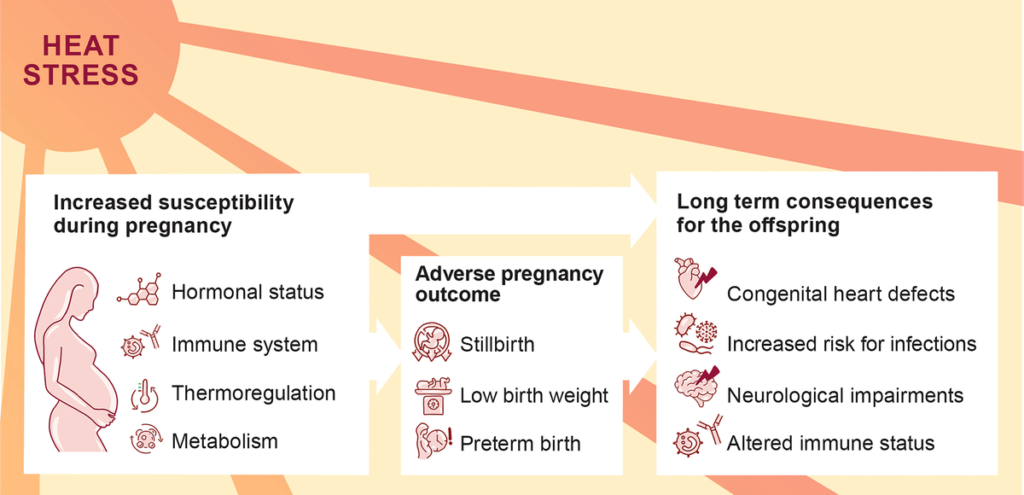A new study has sounded the alarm about the escalating dangers posed by extreme heatwaves, exacerbated by climate change, to pregnant women around the world. The research, conducted by U.S.-based organization Climate Central, emphasizes the growing risks of pregnancy complications due to exposure to extreme heat.
Heatwaves and Pregnancy: Rising Risks to Maternal Health
Previous studies have already established a concerning link between exposure to extreme heat during pregnancy and a range of adverse outcomes. These include premature birth, stillbirth, birth defects, and gestational diabetes. The new report builds on these findings, revealing that since 2020, the exposure of pregnant women to extreme heat has dramatically increased, largely due to climate change.

The study found that in 222 out of 247 countries and territories analyzed, climate change has at least doubled the number of pregnancy heat-risk days in the past five years. The countries most affected by this rise in heat risk are predominantly in developing regions with limited healthcare access, such as the Caribbean, Central and South America, Southeast Asia, sub-Saharan Africa, and the Pacific Islands.
Global Impact and Health Risks of Rising Heat
The research measured the rise in potentially dangerous hot days but did not delve into how much of an impact these extreme temperatures are having on pregnant women in the affected regions. However, experts suggest that these heatwaves also pose a significant threat to other vulnerable groups, such as the elderly.

Ana Bonell, a maternal health researcher at the London School of Hygiene and Tropical Medicine, highlighted that the study clearly shows the increased exposure risk to extreme heat. She also noted that while extreme heat is known to threaten human health in various ways, there remain many unknowns regarding the physiological effects it has on pregnancy outcomes.
Climate Change and Pregnancy Complications
A 2024 study in Nature Medicine found that heatwaves increase the odds of pregnancy complications by 1.25 times. With the planet’s temperatures continuing to rise, experts are urging both global and local efforts to combat climate change while also focusing on immediate ways to protect vulnerable populations from extreme heat.
Actionable Solutions: Fighting Heat with Community-Based Policies
While efforts to reduce global greenhouse gas emissions remain crucial, experts recommend local policies to protect communities from the dangers of extreme heat. Suggested measures include greening neighborhoods, creating cooler public spaces, limiting pollution, and raising awareness about the health risks of heatwaves, especially for pregnant women.
French epidemiologist Lucie Adelaide emphasized that health risk warnings about heatwaves should include specific alerts for pregnant women, a group that is often overlooked in public health strategies related to heat.
Conclusion: A Growing Challenge for Maternal Health
As global temperatures continue to rise, the health risks associated with extreme heat are becoming increasingly severe for pregnant women. The latest study serves as a call to action for governments, healthcare providers, and communities to implement solutions that reduce exposure to dangerous heat, particularly in developing regions. The findings highlight the need for comprehensive policies and strategies that not only address climate change but also protect vulnerable populations from its impacts.




